Turkey is a ‘colonial expansionist power’: Expert
Turkey is a “colonial expansionist power” and what the country’s military has done by launching an offensive in northeastern Syria is regarded as an illegal military invasion and a “foul violation of international law,” a political expert says.
Turkish President Recep Tayyip Erdogan announced on Tuesday that his country’s military forces and the Turkish-backed militants of the so-called Free Syrian Army (FSA) have launched a long-threatened offensive in Syria’s northeast against Kurdish militants from the People's Protection Units (YPG) in an attempt to push them away from border areas.
“Turkey regardless of who rules it, be it a nationalist or a religious extremist, is a colonial expansionist power… What Turkey has done constitutes an illegal military invasion. There is no legality to what Turkey has done; Syria is an independent sovereign country and Turkey has committed a foul violation of international law by again launching an illegal military invasion of Syria,” Marcus Papadopoulos, the founder and editor of the Politics First magazine in London, said during a Thursday edition of Press TV’s The Debate program.
The Turkish military, with support from allied militants of the so-called Free Syrian Army, launched two cross-border operations in northern Syria: the “Euphrates Shield” in August 2016 and the “Olive Branch” in January 2018, with the declared aim of eradicating the presence of Kurdish militants and Daesh terrorists near Turkey’s borders.
“Erdogan has a profoundly colonial mindset, he regards parts of Syria as belonging to Turkey and this is his opportunity to extend the cancerous tentacles of Turkey by employing its military,” Papadopoulos added.
Asked whether the Turkish invasion of northeastern Syria could help revitalize the Takfiri Daesh terrorist group in the region, he said, “It’s a distinct possibility.”
Michael Arnold, a researcher on the Middle East from Istanbul, was the other panelist invited to The Debate program, who lashed out at the United States’ unreliability as well as its NATO ally.
“The whole situation demonstrates the difficulty of relying on Americans even for what is supposed to be a NATO ally in Turkey… the fact that the United States chose to support the YPG, which is connected to the PKK, has created the situation from the beginning,” Arnold said.
“The American reliability and trustworthiness in this case is problematic and all over the map in many ways,” he added.
Ankara views the US-backed YPG as a terrorist organization tied to the homegrown Kurdistan Workers' Party (PKK) militant group, which has been seeking an autonomous Kurdish region in Turkey since 1984.
The YPG also constitutes the backbone of the so-called Syrian Democratic Forces (SDF), an anti-Damascus alliance of predominantly Kurdish militants.
The US has long been providing the YPG and SDF militants with arms, calling them a key partner in the purported fight against the Takfiri Daesh terrorist group in Syria. Many observers, however, see the support as part of Washington's plans to carve out a foothold in the Arab country.
Ankara says one of its goals in the cross-border incursion is to form a “safe zone” to which at least one million refugees from the Arab country can return, after the years-long presence of refugees in Turkey became an increasingly political liability.
Erdogan said on Thursday that his country's forces had already killed, injured or captured a total of 109 Kurdish forces. However, the SDF said the number was exaggerated.
The so-called Syrian Observatory for Human Rights (SOHR), which is based in London, said at least 16 SDF militants had been killed and dozens more injured.
The International Rescue Committee aid organization said at least 64,000 people had reportedly fled their homes and the number could surpass 300,000 if the offensive were to continue at this rate.
VIDEO | 85% of Yemeni displaced people face daily hunger crisis
US House passes bill targeting charities and pro-Palestine groups
VIDEO | Supporting Gaza genocide
Hezbollah attacks Israeli forces after Lebanese homes blown up
World leaders, states hail ICC arrest warrants for Netanyahu, Gallant
MP: US accountable for possible Israeli 'foolishness' to attack Iraq
VIDEO | Israeli policies strangle Palestinian agriculture, economy
Iran's president offers condolences to Pakistan over terrorist attack






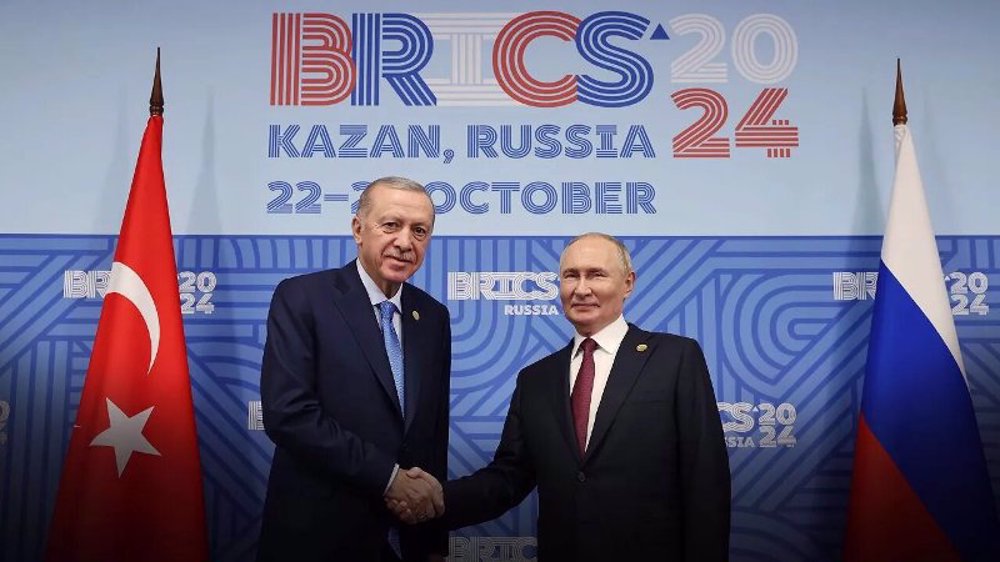
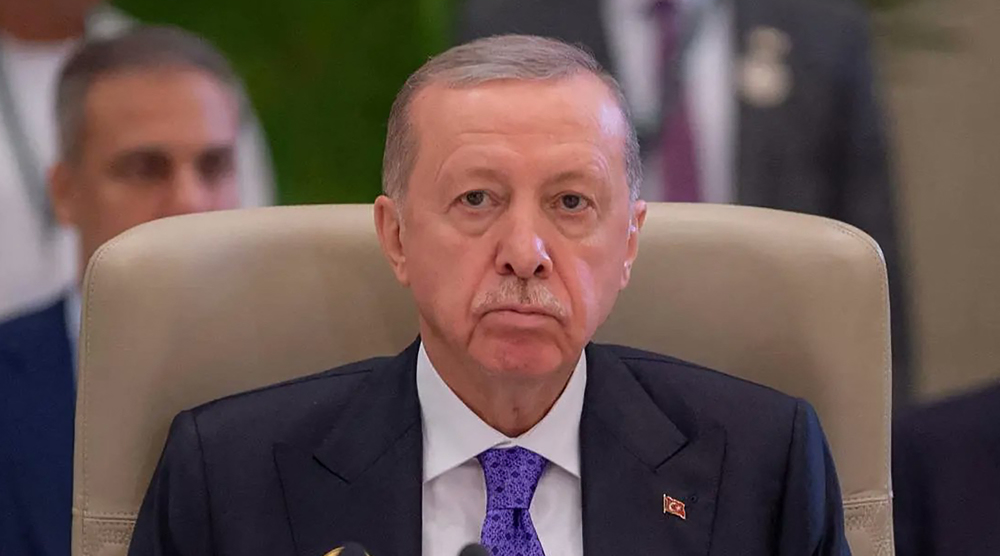



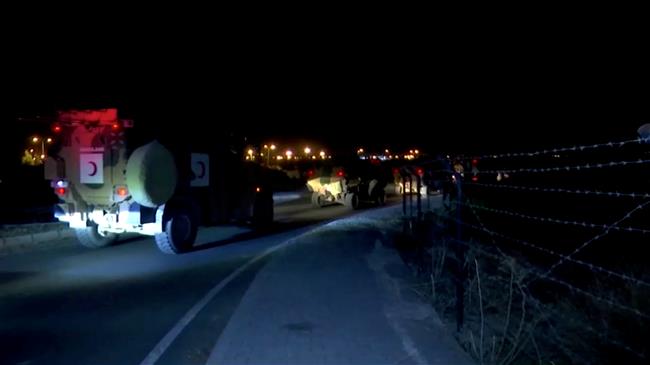
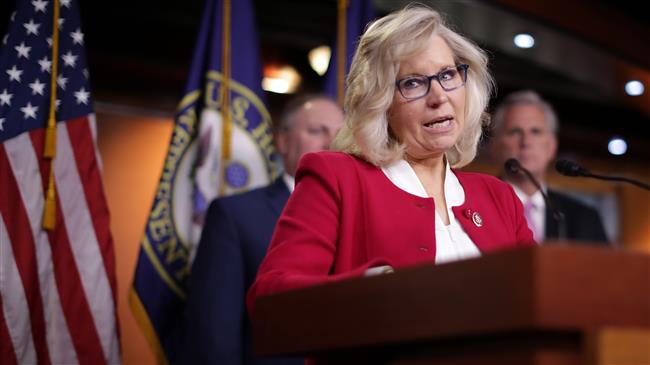
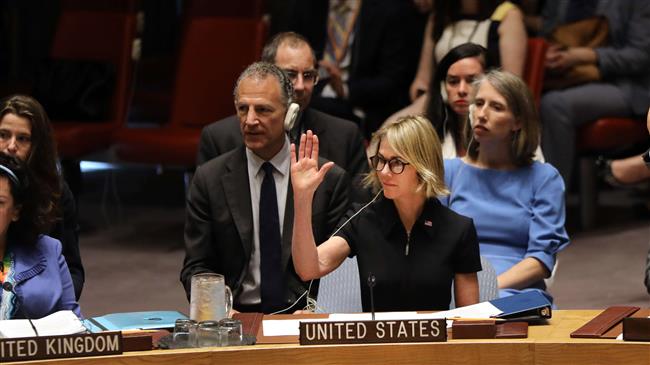
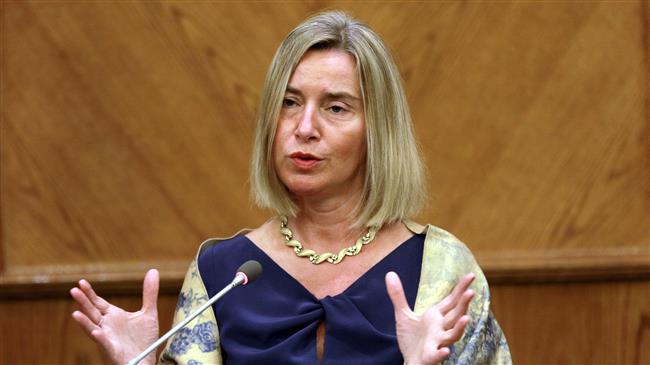
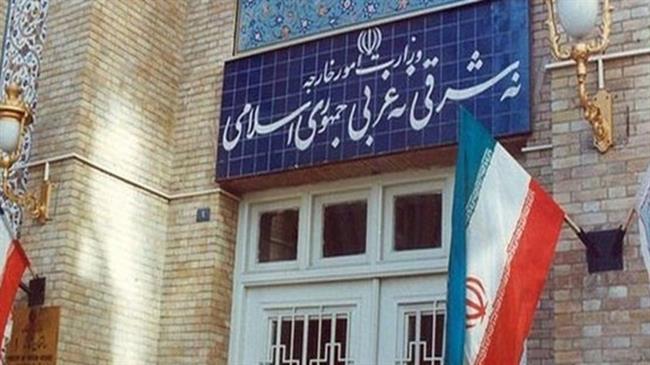
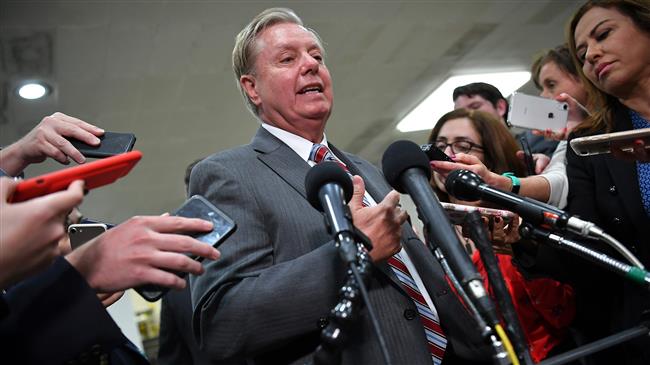
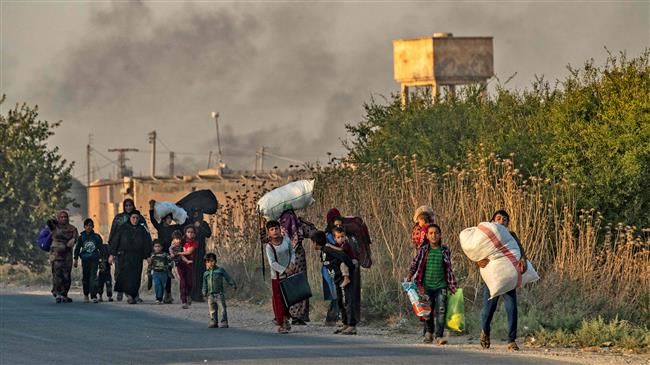

 This makes it easy to access the Press TV website
This makes it easy to access the Press TV website